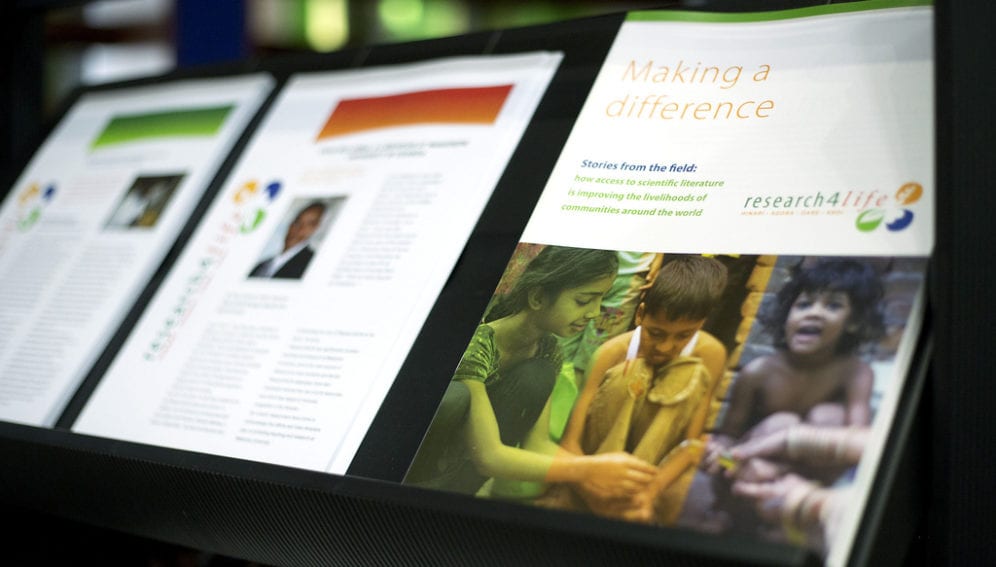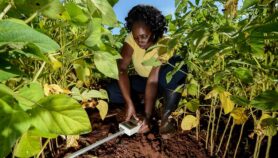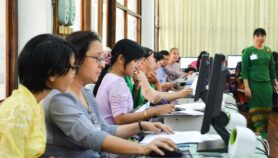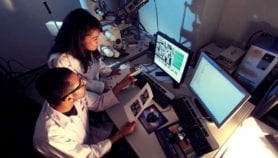By: Giovanni Sabato
Send to a friend
The details you provide on this page will not be used to send unsolicited email, and will not be sold to a 3rd party. See privacy policy.
[ROME] Ten years after the launch of a programme offering developing nations free or low-cost access to food and agricultural research, thousands of organisations have registered, although many potential users are not making use of it.
AGORA (Access to Global Online Research in Agriculture) is run by the FAO in partnership with several publishers and scientific institutions. It provides 2,500 institutions in 116 countries with online access to more than 3,500 journal titles and 3,300 books.
The programme is part of the Research4Life initiative, a collective name for four public-private partnerships, that seek to help achieve the UN’s Millennium Development Goals by improving developing nations’ access to research. The other three partnerships focus on health, the environment, and on development and innovation.
“It is performing far better than we could ever have hoped, delivering information to institutions that often had no access,” Stephen Rudgard, chief of knowledge and capacity for development at FAO, where he supervises the AGORA team, tells SciDev.Net.
“And, every year, more publishers are joining, so the content is increasing and the users are increasing.”
“Too often we find people don’t even know of AGORA. Focal points inside the institutions should promote it, but sometimes they are not playing their role. ”
Stephen Rudgard, AGORA
But when it comes to using the services, there remains room for improvement, Rudgard says. “The level of use is not where we would like. Many organisations are registered but are not using it,” he says.
One barrier is slow and expensive access to the Internet, although this is improving in many countries.
“But too often we find people don’t even know of AGORA. Focal points inside the institutions should promote it, but sometimes they are not playing their role. We see stronger use in higher education institutions, where students and professors are constantly seeking new knowledge. So we learned we have to constantly push other institutions to be more proactive,” he adds.
Jorge Contreras, an associate law professor at American University, United States, describes programmes such as AGORA as “a wonderful resource”. But he adds: “Information philanthropy programmes can’t, by themselves, solve research access problems”.
This is because they suffer from several drawbacks, he tells SciDev.Net.
They only benefit researchers at non-profit institutions in the least-developed countries and so exclude small, local enterprises and many other low-income countries, he says.
And it is “presumptuous” for developed nations to decide what science is relevant for developing world researchers, for instance excluding fields such as physics, mathematics and astronomy, as AGORA generally does, Contreras says.
Furthermore, such programmes discourage the development of high-quality local journals, which become both less necessary for and less attractive to the best local researchers, according to Contreras.
Finally, as charity can always be withdrawn, it is an unreliable foundation for a strong, local research infrastructure, he says.
New approaches need to be developed, he says, “such as creating a South-focused index of elite journals, encouraging publication in and citation of such journals, and finding new financial models to extend open access”.
Some of these concerns are already being tackled, according to Rudgard. “The partners are committed until at least 2020 and, even after, nobody sees a date at which AGORA would finish.”
As for the development of local science and publishing, he says it is a serious issue, but adds that “several programmes by our partners at Research4Life are promoting skills to foster local journals, sometimes in local languages”.
Link to the AGORA programme
See below for a promotional video about Research4Life:
The original title of this article incorrectly referenced open access when it should have been free access. The title was updated on 5 November 2013 to reflect this correction.














